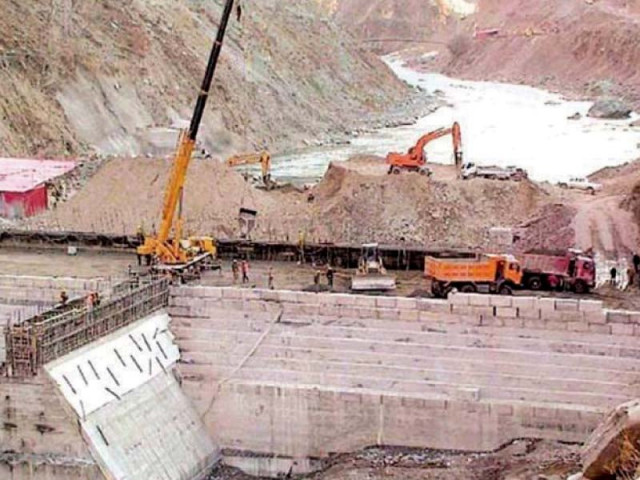Delay in power projects scuppers plan to end outages
Prime minister directs power ministry to come up with reasons for delay

The meeting was informed that the Neelum Jhelum power project could not be completed by the set timeframe as excavation of 4,877 metres of tunnel would require another 16 months keeping in view the pace of work. PHOTO: FILE
The government’s plan to end electricity outages in 2018 has suffered a setback as work on two major hydroelectric power projects has been delayed, irking Prime Minister Nawaz Sharif.
Now the premier has directed the Ministry of Water and Power to prepare a report about the commitments made by the Water and Power Development Authority (Wapda) chairman in relation to the power projects and reasons for the delay.
Mangla power plant: WAPDA undecided about turbine rehabilitation deal
In recent months, the PM has announced on different occasions that power outages will come to an end in 2018 - the election year - but it appears to be difficult for the government following delay in completion of critical projects.
The government had planned to complete power plants of 10,000-megawatt capacity until the winter of 2018 but the prime minister has now been told that Neelum Jhelum hydroelectric power project and Tarbela-IV Extension project with a cumulative capacity of 2,369MW have been delayed.
Finance Minister Ishaq Dar, in a high-level meeting chaired by the premier, said the Wapda chairman had assured in a meeting in January 2016 that the Tarbela-IV Extension project with a 1,400MW capacity would start operation in July 2017.
However, keeping in view the progress made so far, it would not be possible for Wapda to meet the goal despite payment of an extra $51 million to a contractor for hiring more human resource and deploying more machinery to accelerate the work.
This made the prime minister concerned, who noted that despite repeated assurances, the project was not expected to be completed in 2017.
Energy crisis: Efforts underway to increase electricity output, says Shahbaz
Regarding the 969MW Neelum Jhelum power project, the meeting was informed that it could not be completed by the set timeframe as excavation of 4,877 metres of tunnel would require another 16 months, keeping in view the pace of work.
In this case too, the PM expressed his annoyance over failure to meet the commitment and asked for reasons behind the delay. An official of the power ministry argued that no effective monitoring mechanism was in place.
The prime minister warned that any delay would not be tolerated at all and directed the ministry to prepare a report on the progress and justification for the delay.
During the previous Pakistan Peoples Party government, the cost of Neelum Jhelum project had jumped to $2.74 billion from $1.8 billion and the estimate further went up to $4.21 billion during the rule of present administration.
In order to secure water supplies, Pakistan had kicked off work on the Neelum Jhelum River in Azad Jammu and Kashmir, but at the same time India developed the Kishanganga hydroelectric power project on the river, which sparked a legal battle between the two countries in the International Court of Arbitration.
The project was earlier scheduled to be completed by October 2015, but the deadline has been revised to November 2016. Its financial close has not yet been achieved.
In a meeting in June last year, the prime minister had been told that the project would not be ready even in 2016 and work may be extended to 2017.
The power ministry official spoke about the planned increase in power production by 10,000MW with the help of different fuels by the winter of 2018.
According to him, 441MW excluding Guddu plant will be available in the summer of 2016 and 1,121MW by the winter, including 680MW from the civil nuclear power plants. A considerable improvement will be made in 2017 through the addition of 4,418MW and a total of 9,090MW will be added to the national grid by the winter of 2017. This includes 2,400MW from LNG-based power plants.
Published in The Express Tribune, March 24th, 2016.
Like Business on Facebook, follow @TribuneBiz on Twitter to stay informed and join in the conversation.



















COMMENTS
Comments are moderated and generally will be posted if they are on-topic and not abusive.
For more information, please see our Comments FAQ